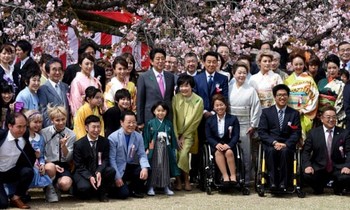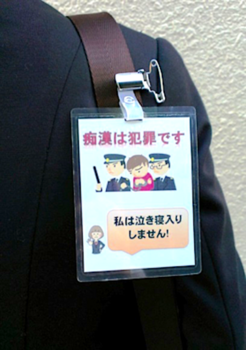大学入学共通テストの英語 [社会]
大学入学共通テストの英語では「読む、聞く」の2技能のみ測定
「日本語訳」
2020年度開始の大学入学共通テストの英語では「読む、聞く」の2技能のみ測定することになるが、従来のセンター試験に比べてリスニングにより重点を置くことになる、と大学入試センターは11月15日の金曜日に発表した。
大学入試センターは6月に発表した通り、「読む、聞く」の2技能の評価に重点を置く方針を変えない。しかし、民間英語検定試験の導入は延期された。
今年の6月に大学入試センターは4技能を評価する民間英語検定試験の導入に合わせて、「読む、聞く」の技能を間接的に評価していた出題内容を取りやめると発表した。
政府が新制度の大学入学試験の導入を2024年度まで延期するすることにしてから、大学入学センターは英語の出題内容変更の是非を検討してきた。
2021年度の出題内容については来年の6月ごろまでに発表するとのこと。
新しい試験(大学入学共通テスト)では、発音、アクセント、語句整序などで間接的に「話す、書く」技能を測定する問題は以前の計画通り取りやめることになることが大学入試センターの話でわかった。
配点もこれまでのセンター試験の筆記200点、リスニング50点の計250点から新しい試験(大学共通テスト)ではリーディングとリスニング各100点の計200点に変更した。
民間英語検定試験の導入は萩生田光一文部科学大臣の失言問題を受けて今月初めに延期が決定した。
「英文記事」
University entrance exam to focus only on English reading and listening skills
Kyodo Nov 15, 2019
The standardized university entrance exam will test only English reading and listening skills in the 2020 academic year beginning in April, while placing more emphasis on listening than current exams, the government-backed exam-setter said Friday.
The National Center for University Entrance Examinations will stick to its plan of focusing on the two skills, details of which were released in June, even though the launch of private-sector English proficiency tests has been postponed.
In June, the center said it will eliminate exam questions aimed at indirectly gauging writing and speaking skills in line with the introduction of private-sector tests which check reading, listening, writing and speaking skills.
Since the government decided to delay the launch of the new program until around the 2024 academic year, the center has been studying whether it needs to revise the content in its English-language component of the exam.
For the 2021 academic year, the center will present its exam coverage plan around next June.
In the new exam, questions indirectly testing speaking and writing levels via pronunciation, accent and sentence arrangements will be eliminated as previously planned, according to the center.
The score for the existing standardized exam totals 250 points, comprised of 200 points for written parts and 50 points for listening. The score for the new exam will total 200 points, broken into 100 points for reading and 100 points for listening.
The introduction of private-sector English proficiency tests was delayed earlier this month following a gaffe made by education minister Koichi Hagiuda.
「日本語訳」
2020年度開始の大学入学共通テストの英語では「読む、聞く」の2技能のみ測定することになるが、従来のセンター試験に比べてリスニングにより重点を置くことになる、と大学入試センターは11月15日の金曜日に発表した。
大学入試センターは6月に発表した通り、「読む、聞く」の2技能の評価に重点を置く方針を変えない。しかし、民間英語検定試験の導入は延期された。
今年の6月に大学入試センターは4技能を評価する民間英語検定試験の導入に合わせて、「読む、聞く」の技能を間接的に評価していた出題内容を取りやめると発表した。
政府が新制度の大学入学試験の導入を2024年度まで延期するすることにしてから、大学入学センターは英語の出題内容変更の是非を検討してきた。
2021年度の出題内容については来年の6月ごろまでに発表するとのこと。
新しい試験(大学入学共通テスト)では、発音、アクセント、語句整序などで間接的に「話す、書く」技能を測定する問題は以前の計画通り取りやめることになることが大学入試センターの話でわかった。
配点もこれまでのセンター試験の筆記200点、リスニング50点の計250点から新しい試験(大学共通テスト)ではリーディングとリスニング各100点の計200点に変更した。
民間英語検定試験の導入は萩生田光一文部科学大臣の失言問題を受けて今月初めに延期が決定した。
「英文記事」
University entrance exam to focus only on English reading and listening skills
Kyodo Nov 15, 2019
The standardized university entrance exam will test only English reading and listening skills in the 2020 academic year beginning in April, while placing more emphasis on listening than current exams, the government-backed exam-setter said Friday.
The National Center for University Entrance Examinations will stick to its plan of focusing on the two skills, details of which were released in June, even though the launch of private-sector English proficiency tests has been postponed.
In June, the center said it will eliminate exam questions aimed at indirectly gauging writing and speaking skills in line with the introduction of private-sector tests which check reading, listening, writing and speaking skills.
Since the government decided to delay the launch of the new program until around the 2024 academic year, the center has been studying whether it needs to revise the content in its English-language component of the exam.
For the 2021 academic year, the center will present its exam coverage plan around next June.
In the new exam, questions indirectly testing speaking and writing levels via pronunciation, accent and sentence arrangements will be eliminated as previously planned, according to the center.
The score for the existing standardized exam totals 250 points, comprised of 200 points for written parts and 50 points for listening. The score for the new exam will total 200 points, broken into 100 points for reading and 100 points for listening.
The introduction of private-sector English proficiency tests was delayed earlier this month following a gaffe made by education minister Koichi Hagiuda.
桜を見る会を公私混同? [英語]

政府主催、恒例の桜を見る会ー2020年は中止となる
「日本語訳」
派手な出費だとの批判を受けて安倍首相は桜を見る会を中止
納税者の税金が使われる行事は立派な業績を残した人に敬意を表するために行われることになっているのだが、それが政治的な後援会の場になっているという批判が出ている。
次第に広がりを見せている問題の鎮静化を図ろうと、日本の総理大臣は納税者が資金を提供する来年の祝いの催しを中止することにした。
桜を見る会にかかる費用が年々上昇し、政治目的のためのに開かれているという批判を受けて、安倍首相は2020年のパーティを取りやめるという動きに出た。
1952年から総理大臣主催で開かれてきた春の社交的な催し(桜を見る会)はもともとは、それぞれの分野で優れた業績を上げたスポーツ選手、著名人やその他の一般人などに敬意を表するために開催されてきたのだが、次第に政府の政治的な支援者の働きに報いるために開かれるようになってきているとの批判が出てきた。山口県の安倍首相の選挙区の有権者には東京行の旅行パックが提供され、行事が開かれる週末には屋形船乗船を楽しむことが出来る、と朝日新聞は報じている。
「公私混同は政治権力を持つ首相が最もしてはならないことの一つのはずだ。政権与党全体がこうした公私混同問題に鈍感になっているのは否定はできない。」と毎日新聞は社説で述べている。
今年4月に新宿御苑国立庭園で開催された桜を見る会には18.000人以上もの人が参加したが、4年前に比べて4,500人以上も増えている。来年度の(桜を見る会の)予算の概算要求額は約5,700万円で、2014年度の2倍近いと地元のメディアは報じている。安倍晋三首相は、野党が公的資金が私的目的に使われ、公職選挙法に違反している可能性があるかどうかを調査する委員会を立ち上げるとの発表を受けて、来年度の桜を見る会の開催を中止した。
政府は桜を見る会の規模や参加者の選定基準の見直しをすると話しているが、参加費用が高額になっているのはテロ対策のためだと話している。
今回の問題は、2人の閣僚が地元の有権者にメロン、じゃがいもなどの贈り物をして公職選挙法に違反の疑いがあるとの批判を受けて辞任した数週間後に起きたもの。過去にこれよりも大きなダメージがあったスキャンダルに耐えてきた安倍首相だが、来週には在任期間が歴代最長の総理大臣となる。
「英文記事」
Japan's PM cancels cherry blossom party after outcry over florid spending
The Guardian 2019/11/14
Taxpayer-funded festivities are meant to honour praiseworthy citizens but critics say they have turned into an exercise in political patronage
In a bid to contain a blossoming scandal over lavish flower-viewing parties, Japan’s prime minister has cancelled next year’s annual taxpayer-funded festivity.
Shinzo Abe’s move to shut down the 2020 party comes after criticism that the cost of the cherry blossom event had spiralled and has been misused for political purposes.
Hosted by prime ministers almost every year since 1952, the springtime social event was originally meant to honour sportspeople, celebrities and other citizens who have excelled in their fields, but critics say it is increasingly used to reward the government’s political supporters. Voters from Abe’s constituency in Yamaguchi prefecture have even been offered bundled travel packages to go to Tokyo and enjoy river cruises on the weekend of the festivities, the Asahi Shimbun reported.
“Mixing personal affairs and public activities is something that should never be done by a prime minister who has political authority,” the Mainichi newspaper said in an editorial, adding: “There is no denying the fact that the ruling bloc as a whole has become numb to intertwining public and private activities.”
More than 18,000 people attended the festivities at Tokyo’s Shinjuku Gyoen national garden in April this year, about 4,500 more than five years ago. The planned budget of 57 million yen (£408,000) for the 2020 event represented a doubling of the cost since 2014, local media reported. Abe cancelled it after opposition parties announced a taskforce to investigate whether public funds were used for private purposes in a potential violation of electoral law.
The government said it would review the event’s scale and invitation criteria but insisted the higher cost was due to counter-terrorism measures.
The issue arose a few weeks after two ministers resigned from Abe’s cabinet amid accusations they gave constituents gifts such as melons and potatoes in possible breach of electoral law. Abe, who has withstood more damaging scandals in the past, is due next week to assume the record of longest-serving Japanese prime minister.
痴漢撃退グッズ [英語]
通勤客は痴漢防止にさまざまな対策を講じる。
アプリ、バッジ、目に見えないインクなどで痴漢に反撃を開始。
満員電車に付き物の痴漢に悩まされている日本の女性たちが、様々な痴漢撃退グッズを駆使して痴漢被害から身を守っている現状についてイギリスの経済誌エコノミストが伝えていま。
「日本語訳」
痴漢注意報
日本の通勤客は痴漢防止にさまざまな対策を講じている
痴漢の被害者たちはアプリ、バッジ、目に見えないインクなどで痴漢に反撃を開始

松永弥生さんは20代のころずっと、毎日のように仕事の行き帰りに満員電車内で痴漢にあっていた。
あれから30年後、友人の娘さんが高校に通う電車内で痴漢にあっていることを知った。その女子高生は痴漢被害の事を警察や鉄道会社と話しても徒労に終わってしまったので、彼女はあることを取ることにした。「痴漢は犯罪です。私は泣き寝入りしません。!」という痴漢防止カードをカバンにつけることにした。そうしたところ、あっという間にに痴漢に遭うことはなくなった。この女子高生の行動に刺激されて、松永さんは2015年にクラウドファンディング・キャンペーンを立ち上げて、痴漢防止バッジを作成することにした。このバッジは女子高生がカバンに付けているカードと同じくらいの効果が出て、このバッジを付けた人の95%近くの人が公共の交通機関などで痴漢に遭うことがなくなったことがある調査でわかった。
女性専用車両の運行や、天井にカメラを取り付けて痴漢の現場を撮影するなどのほかに、最近相次いで痴漢撃退グッズが出回るようになってきた。。キュカを立ち上げたNari Woo 氏とRemon Katamaya氏は痴漢レーダーを開発したが、このアプリはユーザーが痴漢の被害を匿名で報告出来て、どこでよく見られるかがわかるようになっている。今年の8月に発売して以来、国内の痴漢被害件数は981件が報告されている。東京の警視庁も防犯アプリ、Digi Policeを開発した。画面をタッチするとアプリが起動して、「止めてください。」と大声を上げる。そして画面に「痴漢です。助けてください。」と表示される。個人向けの印鑑を販売しているシヤチハタは痴漢の被害者が目に見えないインクで加害者にマークを付けることが出来、特殊ライドを当てるとマークが浮かび上がるスタンプを開発した。1個2,500円で500個限定のテスト販売を始めたところ、30分程度で完売した。
2017年、痴漢の被害は2943件に上ったが、大半は東京で起きている。実際の被害者数は間違いなくもっと多いはずである。女性通勤者の半数以上が痴漢の被害にあっているとの調査結果もあるが、被害を警察に届け出る人は10%にとどまっている。恐怖心や恥ずかしさで届け出ない人もいれば、学校や職場に送れるのがいやで届け出ない人もいる。「私たちは痴漢は大して騒ぐほどのことではないという考えに慣らされている。」とWooさんは話している。
痴漢はこれまで性的暴行ではなくて、ささいなことと見られてきたと話すのは龍谷大学の牧野雅子氏。痴漢の加害者は6か月の実刑、または50万円の罰金が課せられる。暴行行為が加われば、最長10年の実刑となる
メディアが痴漢のぬれぎぬを着せられた男性たちの話題を取り上げる傾向が出てきても、あまり痴漢被害の解決にはならない。女子生徒に痴漢行為をしたとして不当に非難された男性の話を取り上げた本や映画が2007年にヒットした。痴漢の冤罪と戦う通勤客ためにその費用を負担するサービスを始めた保険会社も現れてきた。現在、痴漢防止活動センターという組織を運営している松永さんは「痴漢の被害を撲滅することは出来ると信じています。」と、前途に期待を抱いている。
記事で取り上げられた様々な痴漢撃退グッズ、アプリ

女子高生のカバンに取り付けた痴漢防止カード

痴漢防止バッジ

警視庁が開発した防犯アプリ、Digi Police

警視庁が開発した防犯アプリ、Digi Police

シヤチハタの「迷惑行為防止スタンプ」

ブラックライトを当てると手のひらのマークの印影が浮かび上がる
「英文記事」
Pervert alert
Japanese commuters try new ways to deter gropers
Victims are fighting back with apps, badges and invisible ink
The Economist 2019/10/31
THROUGHOUT HER 20s, Yayoi Matsunaga was groped, almost daily, on packed rush-hour trains going to and from work. Three decades later, she discovered that her friend’s daughter was being molested on her commute to high school. The teenager, after fruitless talks with the police and railway companies, decided to hang a sign from her bag that read: “Groping is a crime. I will not cry myself to sleep.” The groping stopped immediately. Inspired, Ms Matsunaga launched a crowdfunding campaign in 2015 to create badges with the same message. They proved as effective as the sign: nearly 95% of users stopped experiencing groping on public transport, according to a survey.
Recent years have seen a flurry of innovations in the fight against groping—chikan in Japanese—in addition to the many train services that offer carriages which only women can use, or have installed ceiling cameras in the hope of catching molesters on film. Nari Woo and Remon Katayama of QCCCA, a startup, have launched “Chikan Radar”, an app that enables users to report groping and thus see where it is common. Since its launch in August, 981 cases have been reported across Japan. The Tokyo Metropolitan Police have also created an app, “Digi Police”, that, when activated, screams “Stop it!” and produces a full-screen message that says: “There is a molester. Please help.” Shachihata, a company that sells personal seals, has developed a stamp that allows victims to mark their attackers with invisible ink, which can be detected under ultraviolet light. A trial run of 500 anti-groping stamps, priced at ¥2,500 ($23), sold out within 30 minutes.
There were 2,943 reported cases of groping in Japan in 2017, mostly in Tokyo. The true number of victims is undoubtedly far higher. Surveys suggest that half or more of female commuters have experienced it, although only 10% of victims report the crime to police. Some hold back out of fear and embarrassment; others because they do not want to be late for school or work. “We are socialised to think that groping is not a big deal,” says Ms Woo.
Groping has long been trivialised as a nuisance rather than a form of sexual assault, says Masako Makino of Ryukoku University. Offenders face up to six months in prison or fines of up to ¥500,000. (The potential sentence rises to ten years if violence is involved.)
It does not help that the media tend to focus on stories about men who have been falsely accused of groping. A book and film about a man unjustly accused of molesting a schoolgirl became a hit in 2007. Insurance firms provide policies that defray the cost to commuters of fighting accusations of groping. But Ms Matsunaga, who now runs an organisation called the Groping Prevention Activities Centre, remains hopeful: “I believe that we will be able to eliminate groping.”
アプリ、バッジ、目に見えないインクなどで痴漢に反撃を開始。
満員電車に付き物の痴漢に悩まされている日本の女性たちが、様々な痴漢撃退グッズを駆使して痴漢被害から身を守っている現状についてイギリスの経済誌エコノミストが伝えていま。
「日本語訳」
痴漢注意報
日本の通勤客は痴漢防止にさまざまな対策を講じている
痴漢の被害者たちはアプリ、バッジ、目に見えないインクなどで痴漢に反撃を開始

松永弥生さんは20代のころずっと、毎日のように仕事の行き帰りに満員電車内で痴漢にあっていた。
あれから30年後、友人の娘さんが高校に通う電車内で痴漢にあっていることを知った。その女子高生は痴漢被害の事を警察や鉄道会社と話しても徒労に終わってしまったので、彼女はあることを取ることにした。「痴漢は犯罪です。私は泣き寝入りしません。!」という痴漢防止カードをカバンにつけることにした。そうしたところ、あっという間にに痴漢に遭うことはなくなった。この女子高生の行動に刺激されて、松永さんは2015年にクラウドファンディング・キャンペーンを立ち上げて、痴漢防止バッジを作成することにした。このバッジは女子高生がカバンに付けているカードと同じくらいの効果が出て、このバッジを付けた人の95%近くの人が公共の交通機関などで痴漢に遭うことがなくなったことがある調査でわかった。
女性専用車両の運行や、天井にカメラを取り付けて痴漢の現場を撮影するなどのほかに、最近相次いで痴漢撃退グッズが出回るようになってきた。。キュカを立ち上げたNari Woo 氏とRemon Katamaya氏は痴漢レーダーを開発したが、このアプリはユーザーが痴漢の被害を匿名で報告出来て、どこでよく見られるかがわかるようになっている。今年の8月に発売して以来、国内の痴漢被害件数は981件が報告されている。東京の警視庁も防犯アプリ、Digi Policeを開発した。画面をタッチするとアプリが起動して、「止めてください。」と大声を上げる。そして画面に「痴漢です。助けてください。」と表示される。個人向けの印鑑を販売しているシヤチハタは痴漢の被害者が目に見えないインクで加害者にマークを付けることが出来、特殊ライドを当てるとマークが浮かび上がるスタンプを開発した。1個2,500円で500個限定のテスト販売を始めたところ、30分程度で完売した。
2017年、痴漢の被害は2943件に上ったが、大半は東京で起きている。実際の被害者数は間違いなくもっと多いはずである。女性通勤者の半数以上が痴漢の被害にあっているとの調査結果もあるが、被害を警察に届け出る人は10%にとどまっている。恐怖心や恥ずかしさで届け出ない人もいれば、学校や職場に送れるのがいやで届け出ない人もいる。「私たちは痴漢は大して騒ぐほどのことではないという考えに慣らされている。」とWooさんは話している。
痴漢はこれまで性的暴行ではなくて、ささいなことと見られてきたと話すのは龍谷大学の牧野雅子氏。痴漢の加害者は6か月の実刑、または50万円の罰金が課せられる。暴行行為が加われば、最長10年の実刑となる
メディアが痴漢のぬれぎぬを着せられた男性たちの話題を取り上げる傾向が出てきても、あまり痴漢被害の解決にはならない。女子生徒に痴漢行為をしたとして不当に非難された男性の話を取り上げた本や映画が2007年にヒットした。痴漢の冤罪と戦う通勤客ためにその費用を負担するサービスを始めた保険会社も現れてきた。現在、痴漢防止活動センターという組織を運営している松永さんは「痴漢の被害を撲滅することは出来ると信じています。」と、前途に期待を抱いている。
記事で取り上げられた様々な痴漢撃退グッズ、アプリ

女子高生のカバンに取り付けた痴漢防止カード

痴漢防止バッジ

警視庁が開発した防犯アプリ、Digi Police

警視庁が開発した防犯アプリ、Digi Police

シヤチハタの「迷惑行為防止スタンプ」

ブラックライトを当てると手のひらのマークの印影が浮かび上がる
「英文記事」
Pervert alert
Japanese commuters try new ways to deter gropers
Victims are fighting back with apps, badges and invisible ink
The Economist 2019/10/31
THROUGHOUT HER 20s, Yayoi Matsunaga was groped, almost daily, on packed rush-hour trains going to and from work. Three decades later, she discovered that her friend’s daughter was being molested on her commute to high school. The teenager, after fruitless talks with the police and railway companies, decided to hang a sign from her bag that read: “Groping is a crime. I will not cry myself to sleep.” The groping stopped immediately. Inspired, Ms Matsunaga launched a crowdfunding campaign in 2015 to create badges with the same message. They proved as effective as the sign: nearly 95% of users stopped experiencing groping on public transport, according to a survey.
Recent years have seen a flurry of innovations in the fight against groping—chikan in Japanese—in addition to the many train services that offer carriages which only women can use, or have installed ceiling cameras in the hope of catching molesters on film. Nari Woo and Remon Katayama of QCCCA, a startup, have launched “Chikan Radar”, an app that enables users to report groping and thus see where it is common. Since its launch in August, 981 cases have been reported across Japan. The Tokyo Metropolitan Police have also created an app, “Digi Police”, that, when activated, screams “Stop it!” and produces a full-screen message that says: “There is a molester. Please help.” Shachihata, a company that sells personal seals, has developed a stamp that allows victims to mark their attackers with invisible ink, which can be detected under ultraviolet light. A trial run of 500 anti-groping stamps, priced at ¥2,500 ($23), sold out within 30 minutes.
There were 2,943 reported cases of groping in Japan in 2017, mostly in Tokyo. The true number of victims is undoubtedly far higher. Surveys suggest that half or more of female commuters have experienced it, although only 10% of victims report the crime to police. Some hold back out of fear and embarrassment; others because they do not want to be late for school or work. “We are socialised to think that groping is not a big deal,” says Ms Woo.
Groping has long been trivialised as a nuisance rather than a form of sexual assault, says Masako Makino of Ryukoku University. Offenders face up to six months in prison or fines of up to ¥500,000. (The potential sentence rises to ten years if violence is involved.)
It does not help that the media tend to focus on stories about men who have been falsely accused of groping. A book and film about a man unjustly accused of molesting a schoolgirl became a hit in 2007. Insurance firms provide policies that defray the cost to commuters of fighting accusations of groping. But Ms Matsunaga, who now runs an organisation called the Groping Prevention Activities Centre, remains hopeful: “I believe that we will be able to eliminate groping.”
婚活サイトで地方移住 [社会]
移住婚活で地方を活性化
地方自治体が婚活サイトを立ち上げ、都会の女性と地方の男性をマッチング

イギリスの経済誌エコノミストが日本の公営の婚活サイトの活動を取り上げています。 地方に住む独身男性と都会に住む独身女性をマッチングさせる婚活サイトが登場してきているようです。
「日本語訳」
地方の若者に花嫁を見つけるための公営の婚活サイトが登場
「合コンに出席するようになってから何年にもなるのに、未だに一人として将来の結婚相手が見つかりません。参加しても相手が見つからない合コンなんてもううんざりです。」と話しているのは東京で専門職に就いてる女性。そこでこの女性は首都圏から離れた場所で結婚相手を探そうと、その範囲を拡大することに決めた。そのために、彼女は都会の独身者と地方の独身者をマッチングしてくれるオンラインの婚活サイトの申し込み欄に、名前、職業、趣味、そして体重も記入した。
移住婚活を推し進める結婚仲介業は日本でますます一般的になってきている。
こうした結婚仲介業はこれまでのような民間の結婚相談所ではなくて、地方自治体が主催している。本州の北端にある秋田県では地方自治体主催のオンライン婚活サイトを以前から立ち上げてきて、地方に住んでいて交際相手を求めている孤独な人たちを望む相手と結びつけてきた。秋田県では9年前にこのサイトを立ち上げて、これまでに1350人以上もの秋田県民に結婚相手を見つけてあげた。最近では同様のサービスで、秋田県民に県外に住む人を紹介することを始めたが、その結果については楽観的にとらえている。「私どもの婚活サイトを利用して、県外に住んでいるもっともっと多くの人が秋田県民と結婚して、こちらに来て、秋田県に住んでもらいたいと願っています。」と話すのは秋田結婚サポートセンターの斎藤留美子さん。
オンライン婚活サイトを立ち上げ、全国の地方自治体は婚活バーティを開催して独身者たちが異性の婚活の手助けをしている。参加者の半数は地方の人で残りは都会から来た人達。都会から来た人たちが地元の人たちと結婚して、地方に移住してくれるように勧めている。毎年数百人の独身者がこうした婚活ツアーに参加している。
地方自治体の職員たちはキューピッドの役を演じ、地方の若者が都会に流れていくのを止めたいと望んでいる。全国47都道府県のうち40都道府県では人口が減少している。若者は田舎を出て、都会の大学に通ったり、都会で就職したりする。その結果、地方では独身者が異性とデート出来る交際範囲は非常に狭くなってい。そうした背景が、多くの若者たちが田舎を離れていく要因ともなっている。地方で開催される婚活イベントには毎回、いつも参加している同じ独身者が来ることになり、新たな相手に出会う見込みはほとんどない。地方の婚活マーケットの規模は小さくて、ほとんどないに等しい、と話すのは日本婚活支援協会の後藤幸喜氏。
地方で理想の結婚相手を見つけることの難しさは、男女数のミスマッチによって生じている。人口が減少している都道府県の80%では、男性よりも若い女性の方が都会に移住する傾向にある。
その一方で、東京のような大都会では、男性よりも独身女性の方が多い。地方では独身男性の数が独身女性よりも多くなっている。そのために地方に住む多くの男性は婚活から取り残されることになると嘆いているのは、秋田県の県職員。
これでこの話はおしまいとなるが、移住婚活計画はまだ比較的新しいもので、実際に地方で結婚しても、地方で働く場所を確保出来るかどうかの評価は難しい。これまで、秋田県の婚活システムを使って結婚出来た地元の人はほんの一握りである。東京に住むあの専門職の女性もいまだ結婚相手が見つかっていないが、相手を見つけることが出来るチャンスがあれば、どんなことでもやってみるとのこと。
「英文記事」
Brides for bumpkins
Japan’s state-owned version of Tinder
Local authorities are setting up matchmaking websites to pair their residents with lonely-hearts in the cities
The Economist Oct 3rd 2019
EVEN AFTER years of attending match-making parties, a professional in Tokyo explains, she has not found any suitable marriage prospects. “I’m tired of going to these events and not meeting anyone,” she gripes. So she has decided to expand her pool of prospective partners by looking for love outside the capital. To that end she has filled out an online profile detailing her name, job, hobbies and even weight on a match-making site that pairs up single urbanites with people from rural areas.
Match-making services that promote iju konkatsu, meaning “migration spouse-hunting”, are increasingly common in Japan.
They are typically operated by an unlikely marriage-broker: local governments. In Akita, a prefecture near the northern tip of Japan’s main island, the local government has long managed an online match-making service to link up local lonely-hearts. It claims to have successfully coupled up more than 1,350 Akita residents since it launched nine years ago. It recently began offering a similar service to introduce residents to people living outside the prefecture and is optimistic about its prospects. “By using the konkatsu site, we hope that more people from outside will marry someone from Akita to come and live here,” says Rumiko Saito of the Akita Marriage Support Centre.
Along with online matching services, municipalities across Japan host parties to help singles mingle. They also organise subsidised group tours in rural prefectures, in which half the participants are locals and the other half from cities, to encourage urbanites to marry and move to the countryside. Hundreds of singletons participate in these tours every year.
The rural bureaucrats are playing cupid in the hopes of stemming emigration. The population is shrinking in 40 of Japan’s 47 prefectures. Young people move from the countryside to cities to go to university or look for a job. As a result, the dating pool in rural areas is becoming ever tinier—a situation that encourages even more young people to move away. The same singletons keep showing up at all the local konkatsu events; there is little prospect of meeting new people. “The size of the rural konkatsu market is small; it’s nearly non-existent,” says Koki Goto of the Japan Konkatsu Support Association.
The difficulty of finding true love in the countryside is compounded by a gender mismatch. In 80% of prefectures with declining populations, young women are more likely than men to relocate to cities.
This means that whereas there are more single women than men in big cities like Tokyo, bachelors outnumber spinsters in rural areas. Many men in the countryside are “left behind”, laments a government official in Akita.
So much for the theory. Most iju konkatsu schemes are quite new, making it hard to assess whether they work in practice. Only a handful of urban-rural couples have tied the knot using Akita’s match-making system. The professional in Tokyo has not yet met the one either. But she is willing to try anything that might improve her chances of doing so.
地方自治体が婚活サイトを立ち上げ、都会の女性と地方の男性をマッチング

イギリスの経済誌エコノミストが日本の公営の婚活サイトの活動を取り上げています。 地方に住む独身男性と都会に住む独身女性をマッチングさせる婚活サイトが登場してきているようです。
「日本語訳」
地方の若者に花嫁を見つけるための公営の婚活サイトが登場
「合コンに出席するようになってから何年にもなるのに、未だに一人として将来の結婚相手が見つかりません。参加しても相手が見つからない合コンなんてもううんざりです。」と話しているのは東京で専門職に就いてる女性。そこでこの女性は首都圏から離れた場所で結婚相手を探そうと、その範囲を拡大することに決めた。そのために、彼女は都会の独身者と地方の独身者をマッチングしてくれるオンラインの婚活サイトの申し込み欄に、名前、職業、趣味、そして体重も記入した。
移住婚活を推し進める結婚仲介業は日本でますます一般的になってきている。
こうした結婚仲介業はこれまでのような民間の結婚相談所ではなくて、地方自治体が主催している。本州の北端にある秋田県では地方自治体主催のオンライン婚活サイトを以前から立ち上げてきて、地方に住んでいて交際相手を求めている孤独な人たちを望む相手と結びつけてきた。秋田県では9年前にこのサイトを立ち上げて、これまでに1350人以上もの秋田県民に結婚相手を見つけてあげた。最近では同様のサービスで、秋田県民に県外に住む人を紹介することを始めたが、その結果については楽観的にとらえている。「私どもの婚活サイトを利用して、県外に住んでいるもっともっと多くの人が秋田県民と結婚して、こちらに来て、秋田県に住んでもらいたいと願っています。」と話すのは秋田結婚サポートセンターの斎藤留美子さん。
オンライン婚活サイトを立ち上げ、全国の地方自治体は婚活バーティを開催して独身者たちが異性の婚活の手助けをしている。参加者の半数は地方の人で残りは都会から来た人達。都会から来た人たちが地元の人たちと結婚して、地方に移住してくれるように勧めている。毎年数百人の独身者がこうした婚活ツアーに参加している。
地方自治体の職員たちはキューピッドの役を演じ、地方の若者が都会に流れていくのを止めたいと望んでいる。全国47都道府県のうち40都道府県では人口が減少している。若者は田舎を出て、都会の大学に通ったり、都会で就職したりする。その結果、地方では独身者が異性とデート出来る交際範囲は非常に狭くなってい。そうした背景が、多くの若者たちが田舎を離れていく要因ともなっている。地方で開催される婚活イベントには毎回、いつも参加している同じ独身者が来ることになり、新たな相手に出会う見込みはほとんどない。地方の婚活マーケットの規模は小さくて、ほとんどないに等しい、と話すのは日本婚活支援協会の後藤幸喜氏。
地方で理想の結婚相手を見つけることの難しさは、男女数のミスマッチによって生じている。人口が減少している都道府県の80%では、男性よりも若い女性の方が都会に移住する傾向にある。
その一方で、東京のような大都会では、男性よりも独身女性の方が多い。地方では独身男性の数が独身女性よりも多くなっている。そのために地方に住む多くの男性は婚活から取り残されることになると嘆いているのは、秋田県の県職員。
これでこの話はおしまいとなるが、移住婚活計画はまだ比較的新しいもので、実際に地方で結婚しても、地方で働く場所を確保出来るかどうかの評価は難しい。これまで、秋田県の婚活システムを使って結婚出来た地元の人はほんの一握りである。東京に住むあの専門職の女性もいまだ結婚相手が見つかっていないが、相手を見つけることが出来るチャンスがあれば、どんなことでもやってみるとのこと。
「英文記事」
Brides for bumpkins
Japan’s state-owned version of Tinder
Local authorities are setting up matchmaking websites to pair their residents with lonely-hearts in the cities
The Economist Oct 3rd 2019
EVEN AFTER years of attending match-making parties, a professional in Tokyo explains, she has not found any suitable marriage prospects. “I’m tired of going to these events and not meeting anyone,” she gripes. So she has decided to expand her pool of prospective partners by looking for love outside the capital. To that end she has filled out an online profile detailing her name, job, hobbies and even weight on a match-making site that pairs up single urbanites with people from rural areas.
Match-making services that promote iju konkatsu, meaning “migration spouse-hunting”, are increasingly common in Japan.
They are typically operated by an unlikely marriage-broker: local governments. In Akita, a prefecture near the northern tip of Japan’s main island, the local government has long managed an online match-making service to link up local lonely-hearts. It claims to have successfully coupled up more than 1,350 Akita residents since it launched nine years ago. It recently began offering a similar service to introduce residents to people living outside the prefecture and is optimistic about its prospects. “By using the konkatsu site, we hope that more people from outside will marry someone from Akita to come and live here,” says Rumiko Saito of the Akita Marriage Support Centre.
Along with online matching services, municipalities across Japan host parties to help singles mingle. They also organise subsidised group tours in rural prefectures, in which half the participants are locals and the other half from cities, to encourage urbanites to marry and move to the countryside. Hundreds of singletons participate in these tours every year.
The rural bureaucrats are playing cupid in the hopes of stemming emigration. The population is shrinking in 40 of Japan’s 47 prefectures. Young people move from the countryside to cities to go to university or look for a job. As a result, the dating pool in rural areas is becoming ever tinier—a situation that encourages even more young people to move away. The same singletons keep showing up at all the local konkatsu events; there is little prospect of meeting new people. “The size of the rural konkatsu market is small; it’s nearly non-existent,” says Koki Goto of the Japan Konkatsu Support Association.
The difficulty of finding true love in the countryside is compounded by a gender mismatch. In 80% of prefectures with declining populations, young women are more likely than men to relocate to cities.
This means that whereas there are more single women than men in big cities like Tokyo, bachelors outnumber spinsters in rural areas. Many men in the countryside are “left behind”, laments a government official in Akita.
So much for the theory. Most iju konkatsu schemes are quite new, making it hard to assess whether they work in practice. Only a handful of urban-rural couples have tied the knot using Akita’s match-making system. The professional in Tokyo has not yet met the one either. But she is willing to try anything that might improve her chances of doing so.



